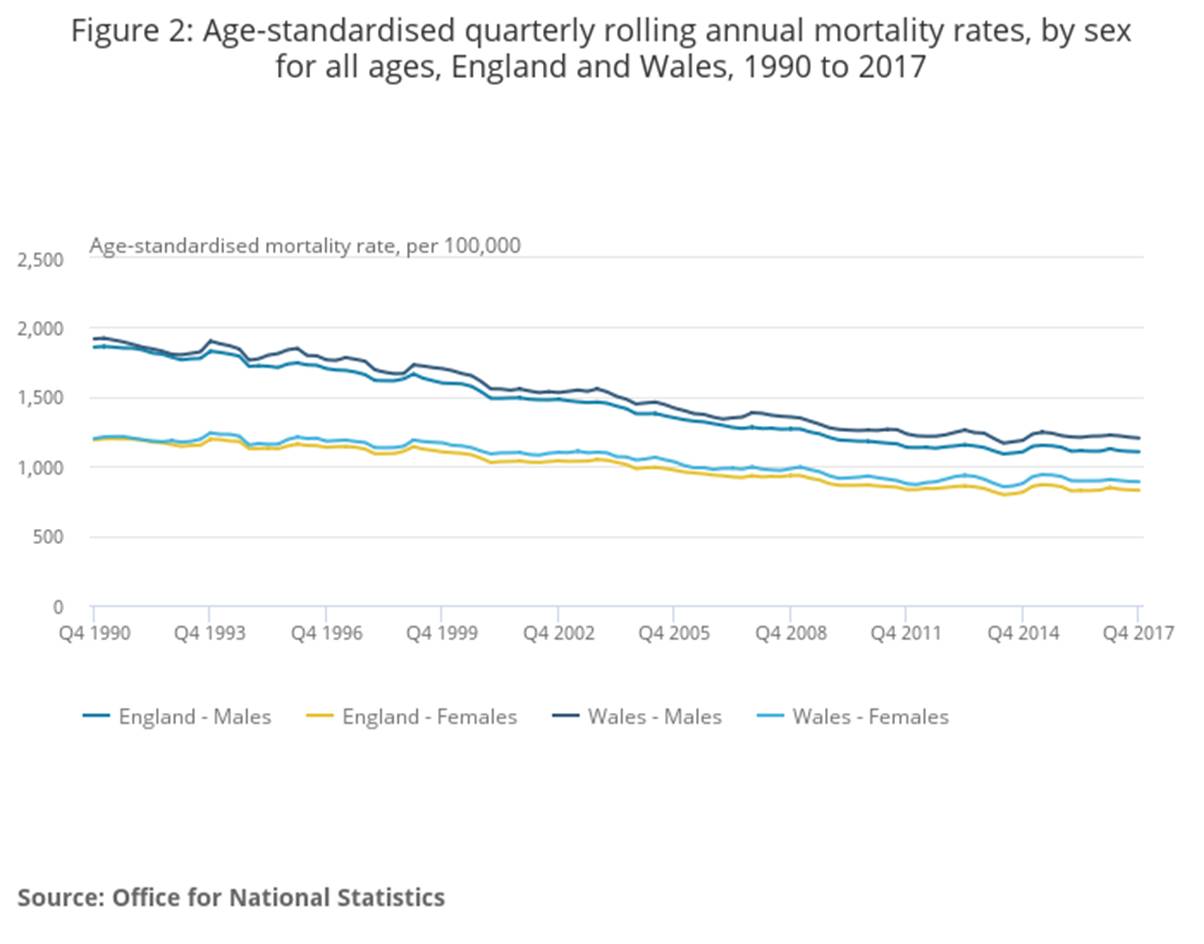Slowdown in mortality rates since 2010 “statistically significant” and continued in the first quarter of 2018
Unclear whether this trend will continue into the future but could have far reaching consequences for individuals and Government
ONS to carry out further analysis to determine reasons behind the change
Tom Selby, senior analyst at AJ Bell, comments:
“While we are in the early days of evidence gathering on an apparent shift in life expectancy trends in the UK, it is possible a run of mortality rate improvements that started over 100 years ago is coming to an end.
“For decades it has been assumed that each generation would live longer than the last, placing ever greater strain on public finances – particularly through the NHS and state pension system - and companies sponsoring defined benefit (DB) pension schemes.
“If – and it is a BIG if – that trend is over, or indeed about to go into reverse, there will be calls for a fundamental rethink on all manner of Government policies, not least plans to increase the state pension age to 68 by 2039.
“However, anyone hoping for a dramatic change of heart from the Government on this will likely be left disappointed. The UK state pension age for men hasn’t changed since the Second World War, despite average life expectancy improving dramatically during that period.
“Furthermore, what we are seeing now is merely a slowdown in life expectancy improvements – the data still shows we are living longer, but just by less than in previous decades.
“Policymakers will therefore need to keep a close eye how these trends develop over time to build a clearer picture of why this is happening and whether it is likely to continue into the future.”
